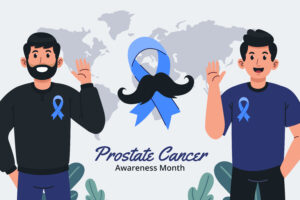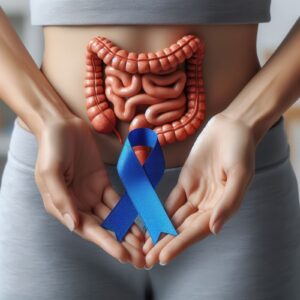The end of active cancer treatment is a momentous occasion, a time for celebration and reflection. Yet, for many survivors, it’s also the beginning of a new phase filled with questions and anxieties. A major concern is the fear of cancer returning, and unfortunately, this fear is often amplified by misinformation and common myths.
Separating fact from fiction is a powerful way to take control of your health and well-being. In this post, we’ll debunk some of the most pervasive myths about cancer risk and recurrence for survivors, arming you with accurate information to help you navigate this new chapter with confidence and clarity. 
Myth 1: “Once my treatment is over, I’m completely cured and my risk is the same as anyone else.”
The Reality: This is a comforting thought, but the truth is more nuanced. While many cancer survivors are considered “cancer-free” after treatment, the risk of recurrence varies greatly depending on the type of cancer, its stage at diagnosis, and the specific treatments received. Some cancer cells may have remained in the body, even if they couldn’t be detected by tests. For some survivors, the risk of a new, unrelated cancer is also a concern.
What This Means for You: It’s important to understand your individual risk. Talk openly with your oncologist about your specific diagnosis and what to expect in terms of long-term follow-up care. Regular check-ups, screenings, and monitoring are vital components of survivorship care.
Myth 2: “Stress and a negative attitude will cause my cancer to come back.”
The Reality: This is a harmful and unfounded myth that can cause immense psychological distress. There is no scientific evidence to suggest that stress or a negative mindset directly cause cancer recurrence. Cancer is a complex biological disease influenced by genetic and environmental factors, not by your emotions.
What This Means for You: While a positive attitude doesn’t cure cancer, managing stress is incredibly important for your overall well-being. The emotional toll of a cancer diagnosis is immense, and it’s completely normal to feel anxious, sad, or angry. Don’t let this myth make you feel guilty for your feelings. Instead, focus on healthy stress-management techniques like mindfulness, connecting with a support group, or talking to a therapist. These actions won’t prevent recurrence, but they will significantly improve your quality of life.

Myth 3: “If I eat sugar, it will ‘feed’ my cancer.”
The Reality: This myth is a common and a source of unnecessary fear. All cells in your body—including cancer cells—use glucose (a type of sugar) for energy. There is no evidence that eating sugar makes cancer grow faster. Furthermore, starving your body of sugar is not an effective way to shrink a tumor.
What This Means for You: While you don’t need to eliminate sugar entirely, a diet high in processed sugars can lead to weight gain, which is a known risk factor for some types of cancer and can increase the risk of recurrence. The best approach is to follow a balanced diet rich in fruits, vegetables, and whole grains, which are excellent sources of naturally occurring sugars and other vital nutrients. A registered dietitian can provide personalized guidance.
Myth 4: “My cancer will definitely come back.”
The Reality: This is a common fear, but it’s not a guaranteed outcome. The chances of recurrence are often lower than survivors fear. Many people who have had cancer go on to live long, healthy lives without a recurrence. While the possibility of recurrence is real, it’s not inevitable.
What This Means for You: Focus on what you can control. Engage in healthy behaviors, like eating well and exercising, to optimize your health. Follow your doctor’s recommendations for follow-up care. Acknowledge your fear, but don’t let it consume you. Instead, channel your energy into enjoying the present and building a strong, healthy future.
Myth 5: “Alternative and complementary therapies can cure my cancer or prevent it from coming back.”
The Reality: While some complementary therapies (like acupuncture or massage) can be incredibly helpful for managing treatment side effects and improving quality of life, they are not a substitute for evidence-based medical care. Be wary of “alternative” therapies that promise a cure without scientific backing. These can be dangerous, lead to delays in effective treatment, and drain your financial resources.
What This Means for You: Always discuss any complementary therapies with your healthcare team to ensure they are safe and won’t interfere with your ongoing care. Embrace proven, supportive therapies that enhance your well-being, but do not replace your medical care with unproven methods.
Navigating Life Beyond the Myths

The journey of a cancer survivor is unique and personal. By debunking these myths, you can replace fear with knowledge and uncertainty with empowerment. Focus on these key principles:
- Educate Yourself: Stay informed with reliable, science-based information from trusted sources like your doctor, the American Cancer Society, or the National Cancer Institute.
- Embrace Healthy Habits: While a perfect lifestyle can’t guarantee a recurrence-free future, adopting healthy habits—a balanced diet, regular exercise, and stress management—can significantly improve your long-term health and well-being.
- Communicate with Your Team: Maintain open and honest communication with your healthcare team. Ask questions, express your fears, and work together to create a survivorship care plan that meets your needs.
- Connect with Others: Sharing your experiences with fellow survivors in a support group or community can provide a sense of camaraderie and validate your feelings. You are not alone on this journey.
Living as a cancer survivor means living with a new kind of awareness. By understanding the facts and focusing on what you can control, you can move forward with strength, resilience, and a clear vision for a healthy, vibrant future.




